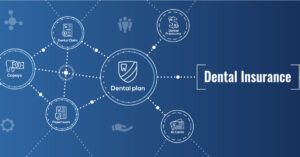Keeping track of accounts receivable can be daunting for dental practices, and mistakes in this area can have serious consequences. These errors can result in delayed payments, lost revenue, and ultimately hurt the financial stability of your practice. To avoid such issues, it is crucial for dental practices to outsource their billing processes to professionals who specialize in handling these tasks.
Outsourcing this work to dental billing services ensures accuracy and efficiency and frees up valuable time for dentists and staff to focus on providing quality patient care. By entrusting your accounts receivable to experts in the field, you can rest assured that all financial matters are handled with precision and attention to detail.
Below, we will discuss accounts receivable mistakes that can hurt your dental practice and how outsourcing dental billing to professionals can help you avoid these problems.
Not Following Up On Outstanding Claims
Many dental practices struggle to keep track of unpaid claims. Failing to follow up on these outstanding claims can lead to significant revenue loss. Dental billing professionals implement systematic processes to monitor claims and ensure none are overlooked. They understand the importance of timely follow-up and act promptly to address any issues that may delay payment.
When claims are not followed up, practices risk losing out on payments that are rightfully owed to them. Dental billing services help prevent this by regularly checking each claim’s status. They can identify problems early on and work directly with insurance companies to resolve them. This focus on follow-up ensures that the practice receives payment as quickly as possible.
Outsourcing dental billing allows practices to shift the responsibility of tracking claims to experienced professionals. This reduces the workload on in-house staff and increases the likelihood of timely payments. With a dedicated team handling billing processes, practices can maintain a healthier cash flow and concentrate on delivering excellent patient care.
Incorrect Billing Codes
By staying updated on the latest dental coding practices, billing professionals can ensure all services are billed correctly. This approach reduces the likelihood of claim denials due to coding errors, allowing practices to receive timely payments.
Missing Codes
Dental practices sometimes forget to include necessary codes. This oversight can lead to payment delays and increased frustration. Dental billing services ensure that all required codes are correctly entered, helping to prevent this issue.
Incorrect Modifiers
Modifiers are crucial in dental coding. Using the wrong modifier can result in claim denials. Billing professionals are trained to apply the correct modifiers, which increases the chances of claims being approved quickly.
Outdated Codes
Using outdated codes can cause significant problems. Practices may face claim rejections if they don’t use the most current codes. Dental billing services stay informed about updates in coding, ensuring that all claims are filed accurately.
Incomplete Codes
Incomplete codes can lead to confusion and denials. Billing professionals meticulously review each claim to ensure completeness. This thoroughness helps dental practices avoid lost revenue due to incomplete billing.
Inadequate Communication With Patients About Their Balances
Effective communication between dental practices and patients regarding account balances is essential. When patients are not informed of their outstanding balances, they may not realize that payment is due. This lack of awareness can lead to delays in payment, affecting the practice’s cash flow. Professional billers can implement clear communication channels to ensure patients receive timely notifications about their financial responsibilities.
Establishing routines for reminders is key. Dental billing professionals can develop protocols to send statements and payment reminders regularly. By articulating the various payment options, they provide patients with the information needed to manage their accounts more effectively. This communication helps to clear up any confusion and encourages patients to address their balances proactively.
Maintaining open lines of communication fosters trust between dental practices and their patients. Patients who feel informed are more likely to engage in conversations about their accounts. Professional billers can assist in this process by training dental staff on how to handle inquiries and communicate balances effectively. This proactive approach enhances transparency and increases the likelihood of receiving timely payments.

Lack of Regular Audits
Regular audits are vital for identifying discrepancies or inefficiencies in billing processes. When dental practices do not perform audits, they risk missing errors that can lead to lost revenue. Outsourced billing teams often include routine audits as part of their services to ensure accuracy and compliance with industry standards.
During these audits, dental billing professionals will look at several key aspects:
- Claims Submission Processes: They check to ensure that all claims are submitted correctly and on time to avoid rejections or delays.
- Payment Posting Accuracy: Professionals examine how payments are recorded to ensure they match the amounts received from providers and patients.
- Denial Management: Auditors analyze patterns in denied claims to identify common issues and work on solutions to reduce future denials.
- Compliance Checks: They ensure that all billing practices align with the latest regulations and coding requirements to avoid potential legal issues.
Proactively conducting audits can save dental practices time and resources while safeguarding revenue streams. Regular reviews help ensure that billing processes remain efficient and accurate. Dental practices can maintain financial health by partnering with outsourcing teams prioritizing routine audits.
Delayed Billing Cycles
Delayed billing cycles can harm a dental practice’s cash flow and overall financial health. When claims are submitted late, it prolongs the time before payments are received, creating financial stress. This delay means that practices may struggle to cover operating expenses, such as salaries, rent, and supplies. To maintain a steady cash flow, it is crucial to streamline the billing process to avoid these delays.
Dental billing professionals play a vital role in minimizing billing cycle delays. They focus on ensuring that claims are submitted accurately and promptly. By systematically organizing claims submissions, they can reduce errors that often lead to rejections and resubmissions. This efficiency helps practices receive their payments faster, improving cash flow.
In addition to timely submission, dental billing services keep track of claims and follow up with insurance companies as needed. This proactive approach prevents delays that can result from miscommunication or missing information. By working closely with the dental practice and insurers, billing professionals help ensure that claims are processed quickly and payments are received on schedule.
Ignoring Small Balances
Many dental practices may overlook small balances patients owe, thinking they are not worth the effort to collect. However, these small amounts can add up to significant revenue over time. If a practice neglects to pursue even minor balances, it risks losing substantial income that could support operations and growth. Every dollar counts, and managing these small debts effectively is crucial for the financial health of the practice.
Outsourced dental billing services are skilled at managing all types of balances, regardless of their size. They ensure that even small amounts are pursued diligently. These services use systematic approaches to track and follow up on outstanding balances, which helps ensure that these debts are collected. By focusing on all accounts, including small ones, practices can enhance their cash flow and improve their overall financial stability.
Professional billing teams are trained to communicate with patients about their balances in a straightforward and respectful manner. They can remind patients of their unpaid amounts and offer flexible payment options. This proactive communication encourages patients to settle small balances promptly, leading to better cash flow for the dental practice. Ignoring these small debts is not an option if a practice wants to maximize its revenue and maintain profitability.
Lack of Expertise in Handling Denials and Appeals
When dental claims are denied, it can be frustrating for practices. Many dental office staff may lack the specialized knowledge to handle these denials and appeals effectively. This lack of expertise can lead to lost revenue, as practices might not follow up on claims or correctly appeal them. However, billing professionals possess the necessary skills to navigate this process, increasing the likelihood of overturning denied claims and securing revenue for the practice.
Understanding the Reasons for Denials
Billing professionals begin by analyzing the reasons behind each denial. They carefully review the claims and look for any mistakes or issues that may have led to the denial. This detailed review allows them to address specific problems quickly and accurately.
Preparing Strong Appeals
Once the reasons are identified, billing experts prepare strong appeals. They gather the necessary documentation, such as treatment records and insurance policies, to support their claims. By presenting a solid case, they enhance the chances of a successful appeal and recovery of funds.
Communicating with Insurance Providers
Effective communication with insurance providers is essential in the appeals process. Billing professionals know how to interact with insurers professionally and confidently. They follow up regularly to ensure that the appeals are being processed and promptly address any questions that arise.
Monitoring and Reporting
Lastly, billing services monitor the progress of appeals and keep the dental practice informed. They provide regular reports on the status of claims and any actions taken. This transparency helps practices understand their financial situation better and allows them to make informed decisions about their revenue cycle management.

Poor Management of Patient Information
Accurate patient information is essential for effective billing. When a dental practice has outdated or incorrect patient data, it can lead to payment delays and confusion. For example, if a patient’s insurance details are not up to date, claims can be denied, causing revenue loss for the practice.
To avoid these issues, billing professionals can establish systems that regularly verify and update patient information. These systems might include routine audits of patient records, automated reminders for patients to confirm their details, or even software that flags inconsistencies in the data.
By incorporating these practices, dental offices can ensure accurate and current information. This streamlines the billing process and enhances overall patient satisfaction because patients appreciate being properly informed about their accounts.
Failing to Utilize Electronic Claims Submission
Billing experts can leverage electronic claims submission to speed up the process, reduce errors, and improve the tracking of claims status. Dental practices that rely on traditional methods of submitting claims often face delays and increased chances of mistakes. By adopting electronic submission, practices can streamline their billing functions significantly.
Here are some benefits of electronic claims submission:
- Faster Processing Times: Claims submitted electronically arrive at insurance companies almost instantly, reducing the waiting period for reimbursement.
- Reduced Errors: Automation lowers the risk of human mistakes, such as miskeying patient information or codes, leading to fewer claim denials.
- Easier Tracking: Electronic systems usually offer real-time updates on the status of claims, allowing practices to monitor progress without lengthy follow-ups.
- Cost-Effective: Dental practices can save money on administrative costs by reducing the amount of paperwork and storage needed for physical claims.
Electronic claims submission enhances efficiency and greatly improves dental practices’ financial health. Embracing technology in billing procedures can unlock a multitude of advantages that traditional methods simply cannot match.
Not Keep Up With Insurance Policy Changes
Dental billing professionals must stay current with changes in insurance policies and regulations. These experts continuously monitor for any updates that may affect the billing process. By staying informed, they ensure that the practice’s billing practices comply with the latest requirements, ultimately leading to maximum reimbursement.
Regularly monitoring insurance policy changes can be daunting, but it is vital for successful reimbursement. Dental billing professionals keep track of new codes, fee schedules, and coverage limitations to ensure the timely submission of accurate claims. They also stay informed about any changes in patient eligibility or benefits that could impact their payment responsibilities.
Don’t Overlook the Importance of Hiring Dental Billing Services!
Outsourcing dental billing services can help practices avoid common mistakes that negatively impact their financial health. By partnering with experienced billing professionals, dental offices can improve their cash flow, reduce denials and delays, and stay current with industry standards. Contact our team today to learn more about the dental billing services we provide!




